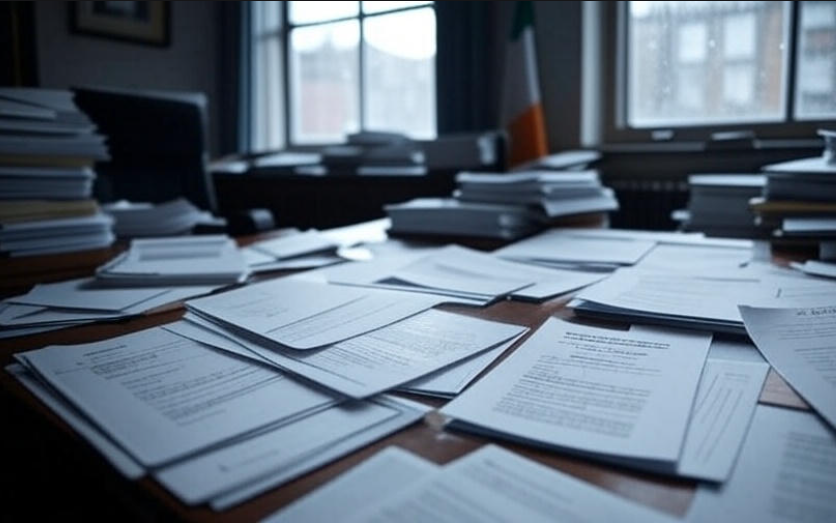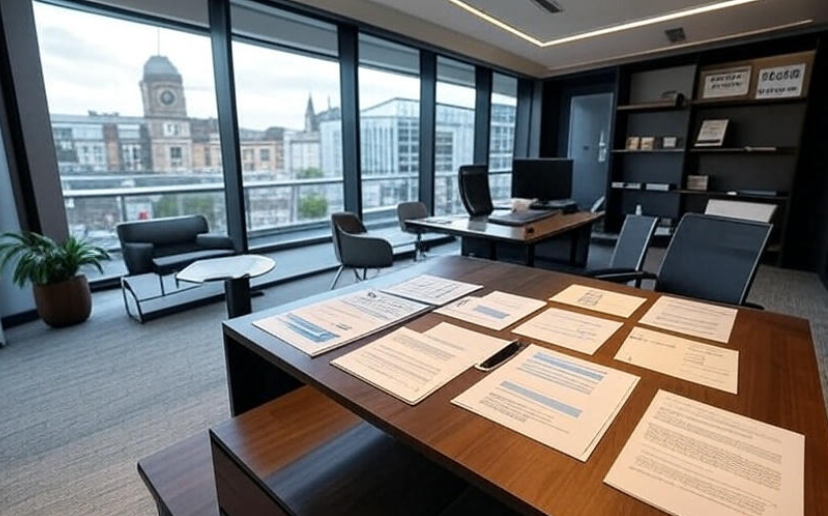Looking for a job is exciting, but it can also be stressful. Many people, especially in Ireland where the job market is competitive, often miss small but important details that cost them great opportunities. The truth is, job hunting is not just about applying everywhere. It’s about being smart, strategic, and avoiding mistakes that make employers lose interest.
Below, I’ll go through some of the most common mistakes people make when looking for work in Ireland, and how you can avoid them.
Not Researching the Irish Job Market
One of the biggest mistakes people make is diving straight into applications without understanding how the Irish job market works. Ireland has a strong demand in sectors like IT, finance, healthcare, and hospitality. But if you don’t know where the opportunities are, you might waste time applying for jobs that barely exist.
For example, Dublin and Cork are hubs for tech jobs. Galway has growing opportunities in medical devices. Meanwhile, rural towns may have fewer openings in specialized roles. A little research about industries and locations can save you time and effort.
Using the Same CV for Every Job
A “one-size-fits-all” CV doesn’t work in Ireland. Employers here value tailored applications. If you use the same CV everywhere, recruiters quickly notice.
Instead, tweak your CV for every job. Highlight the skills that match what the employer is asking for. If the job post says they need project management skills, make sure your CV mentions specific experiences with project management. It shows effort, and effort always stands out.
Here’s a quick comparison:
| CV Style | Employer Reaction | Chances of Interview |
|---|---|---|
| Generic CV sent everywhere | Looks lazy, not targeted | Very Low |
| Tailored CV for each role | Shows you care, fits the role | High |
Skipping the Cover Letter
A lot of candidates think cover letters don’t matter anymore. In Ireland, they still do. Many employers expect one. And if you don’t include it, it might send a message that you’re not serious.
Your cover letter doesn’t have to be long. Just 3–4 short paragraphs explaining:
-
Why you want the job
-
What skills you bring
-
Why you’d be a good fit for the company
Think of it as your chance to talk directly to the hiring manager, not just sending a lifeless CV.
Applying Without Meeting Visa Requirements
This mistake is common among international job seekers. Ireland has strict work visa rules. If you apply for jobs that are not open to non-EU applicants, you waste both your time and the employer’s.
Check the Irish government’s “Critical Skills Occupations List.” If your field is on that list, you’re more likely to get a visa. If it’s not, you might need to apply for different roles or consider study-to-work routes.
Not Networking
Ireland has a friendly culture, and networking plays a big role in landing jobs. Many jobs are never even advertised online. They’re filled through recommendations.
If you only rely on job boards, you miss a huge chunk of opportunities. Instead, try:
-
Attending career fairs in Dublin, Cork, and Galway
-
Joining professional groups on LinkedIn
-
Talking to alumni from your university who work in Ireland
Sometimes, a simple conversation can open doors that hundreds of online applications cannot.
Overlooking LinkedIn
Recruiters in Ireland actively use LinkedIn to find talent. If your LinkedIn profile is incomplete or outdated, you’re missing out.
Make sure your photo is professional, your work experience is up-to-date, and your “About” section highlights your strengths. Add keywords related to your field so recruiters can find you easily.
Think of LinkedIn as your online CV that works 24/7—even while you sleep. 🌙
Being Too Formal (or Too Casual) in Interviews
Interview style in Ireland is somewhere between formal and relaxed. If you’re too stiff, you might come across as cold. If you’re too casual, it may look unprofessional.
Balance is key. Be polite, but also show personality. Employers want to know if you’d be a good cultural fit as well. A smile goes a long way.
Ignoring Small Details
Sometimes, it’s the little things that cost people the job. Things like:
-
Typos in your CV
-
Forgetting to attach your cover letter
-
Using an unprofessional email address (like cooldude123@gmail.com)
-
Arriving late to interviews
These may seem small, but employers notice. In a competitive market, small mistakes make a big difference.

Not Following Up
After an interview, many people just wait. That’s a mistake. Sending a polite thank-you email makes you stand out. It shows professionalism and interest.
Something simple like:
“Thank you for your time today. I enjoyed learning more about the role and the company. I’m very excited about the possibility of joining your team.”
That short message can leave a strong positive impression.
Being Unrealistic with Salary Expectations
Many job seekers either ask for too much or too little. Both are mistakes. If you ask for way above the market rate, employers may reject you immediately. If you ask for too little, you may undersell yourself.
Do some research. Websites like Glassdoor, Indeed, and IrishJobs.ie show salary ranges. That way, you can confidently give a realistic figure during negotiations.
Here’s a simple example:
| Role | Average Salary in Ireland |
|---|---|
| Software Engineer | €45,000–€70,000 |
| Nurse | €35,000–€50,000 |
| Accountant | €40,000–€60,000 |
| Marketing Executive | €30,000–€45,000 |
Not Preparing for Common Questions
Irish employers often ask behavioral questions like:
-
“Tell me about a time you solved a problem.”
-
“How do you work under pressure?”
-
“Why should we hire you?”
If you’re not prepared, you might struggle to answer. The STAR method (Situation, Task, Action, Result) helps you structure answers clearly.
Only Applying to Big Companies
While multinationals in Ireland (Google, Facebook, Pfizer, etc.) are popular targets, smaller Irish companies also offer great opportunities. Sometimes, smaller firms provide more growth and hands-on experience.
Don’t ignore SMEs (small and medium enterprises). They often value skills more than big names on a CV.
Relying Too Much on Recruitment Agencies
Agencies can help, but don’t put all your hopes there. Some agencies only forward applications without much effort. At the same time, employers may prefer candidates who apply directly.
Use agencies as one part of your strategy, not the only one.
FAQs About Job Hunting in Ireland
Q: Is it easy to get a job in Ireland as a foreigner?
It depends on your field. Tech, healthcare, and finance have high demand. Hospitality also hires many foreigners. But you must check visa rules.
Q: Do Irish employers value international experience?
Yes, especially in global companies. But you must also show that you can adapt to Irish workplace culture.
Q: Should I apply for jobs before moving to Ireland?
Yes, but keep in mind employers prefer candidates already in Ireland. If you apply early, be clear about your availability and visa status.
Q: What is the best job site in Ireland?
IrishJobs.ie, Jobs.ie, Indeed.ie, and LinkedIn are among the top. Networking, however, remains equally important.
Final Thoughts
Job hunting in Ireland is not just about sending hundreds of applications. It’s about sending the right applications, at the right time, to the right employers. By avoiding these mistakes—like using generic CVs, skipping research, or ignoring networking—you’ll boost your chances of landing a job much faster.
The Irish job market is competitive, but also welcoming. With preparation, patience, and a bit of networking charm 🍀, you can find the right opportunity and start your career journey in Ireland with confidence.




